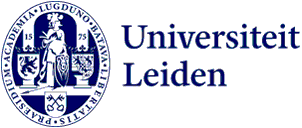
Floris Harm studied Chinese, just like one of his ancestors: ‘We’re both trying to promote mutual understanding’
When Floris Harm took up his role as director of the Leiden Asia Centre, he made a remarkable discovery on the university website. It turned out that a past family member was one of Leiden University’s first sinologists.
As a child, Harm had no idea that this relative had learnt Chinese. His choice of degree subject was thanks to a former schoolmate. ‘I actually wanted to do European Studies in Amsterdam, but at the time it was quite a new programme and no one could really tell me much about it,’ he recalls. It was different for Chinese Studies. ‘The former pupil who came to talk about it was so enthusiastic that it sparked my interest. Another thing was that in those days, in the mid-eighties, the Chinese reforms were starting to attract media attention. The door to a multi-billion dollar market was wide open, so perhaps it might be possible to earn some money with that degree. After the major crisis we were emerging from, that was a very relevant factor for me and many other pupils.’
After some years of studying at Leiden University, Harm went to Beijing in the early 1990s for a language course. ‘That was an amazing experience,’ he says. ‘I had an image of China as a kind of Eastern Bloc: drab, grey and smelling of onions; but I found it was an explosion of colour and activity, where I could also finally practise my Mandarin outside a language lab situation. That gave me tremendous motivation to finish my degree.’
Turning inside out
On the journey home, he also thought of what he wanted to do with his degree. ‘I went home on the Trans-Siberian Express. It was a seven-day journey and halfway through it the coup against Gorbachev took place. The global empire of the Soviet Union was collapsing, as we were approaching Moscow.’ In Moscow, Harm stayed with a former schoolmate, who was a correspondent there. ‘While staying with him, I thought: if I could experience another world-changing moment like that, I’d sign up for it immediately.’
It was the start of a 30-year career in journalism, much of which Harm spent in China, including as a correspondent for NOS, the Dutch public broadcasting channel. ‘The great thing about being that kind of correspondent is that you can really turn a country inside out. Even if you’re not permitted to go everywhere, you do your best to go everywhere.’
Nevertheless, two-and-a-half years ago Harm exchanged journalism for the role of director of the Leiden Asia Centre. ‘I wanted to go deeper and focus more on Asia again. I can do that here, while at the same time I can use my experience in the media to help achieve the LAC’s goal of bringing academics and journalists into contact with each other.’

Full circle
During the application procedure, Harm also made a remarkable discovery. ‘In an article on the university website, I read about one of Leiden University’s first sinologists: Jan Francken.’ Harm recognised him as one of his grandmother’s cousins. ‘My grandmother had occasionally mentioned that someone else in our family had studied Chinese, but like many other stories from that time, it stayed very abstract.’ It was therefore only when he read the article that Harm discovered his ancestor had started a degree in Chinese while still in high school. Then at the age of 19, he went to China to master the nuances of the spoken language, like his relative so many years later. In 1862 he was appointed as an interpreter in Surabaya, Java, but within two years he became ill with dysentery and died, at just 25 years of age. Two weeks later, a large group of Chinese people held a memorial ceremony at his grave, including a highly appreciative eulogy.
‘He must have had a certain bond with those people,’ says Harm. ‘I therefore sometimes mention Francken when I explain to people what the Leiden Asia Centre does. Just like him, we’re trying to promote a good understanding of the languages and cultures of the Chinese community. As a result, Francken sometimes came into conflict with his superiors in Batavia and The Hague, but ultimately that knowledge helps you to progress. So in this way, we really have come full circle.’
